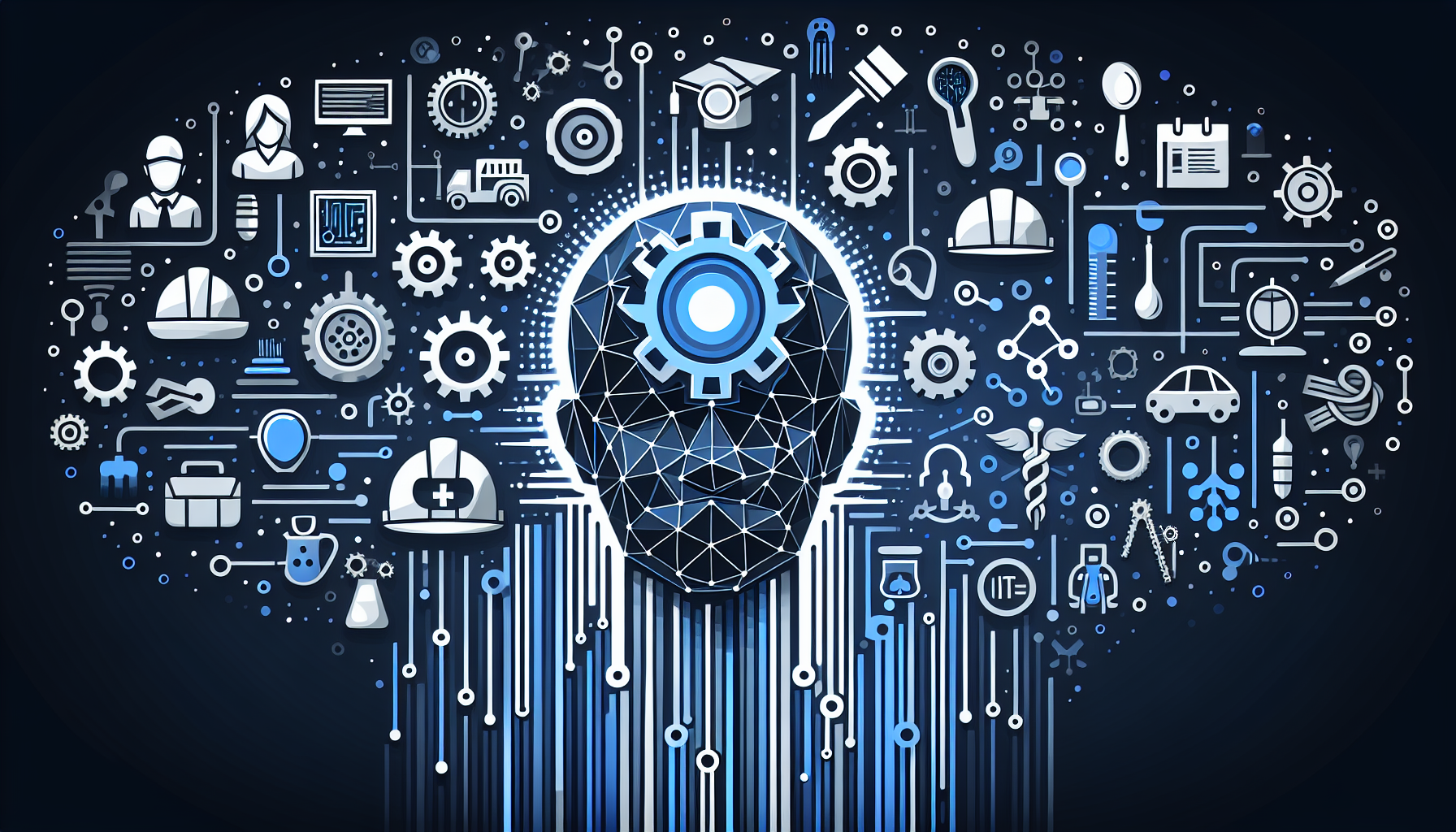The Future of Work: How AI is Reshaping Employment Across Industries
1. The Transformative Power of AI
Artificial intelligence (AI) is revolutionizing various sectors by enhancing productivity, improving decision-making processes, and automating routine tasks. With machines increasingly capable of performing complex jobs that once required human intelligence, businesses are compelled to adapt to this shifting landscape. As industries integrate AI technologies, the role of human labor is evolving, raising questions about employment, skill requirements, and the nature of work itself.
2. AI in Manufacturing
The manufacturing sector is one of the most significantly impacted by AI’s rise. Robotics, powered by machine learning and AI algorithms, can now craft, assemble, and inspect products with astonishing precision. Companies are employing AI-driven predictive maintenance tools that analyze data from equipment sensors to forecast failures before they occur, minimizing downtime and reducing costs.
The implementation of AI leads to the reconfiguration of the workforce; while some routine jobs are being replaced by automated systems, new roles are emerging. Skilled workers are needed to program, manage, and maintain these advanced machines, pointing toward a shift toward higher-skilled positions within manufacturing environments.
3. AI in Healthcare
In healthcare, AI is enhancing the efficiency and effectiveness of patient care. Tools such as AI algorithms analyze medical images, aiding in the diagnosis of diseases like cancer more accurately than human professionals alone. Natural language processing applications help synthesize medical records, making it easier for healthcare providers to access patient histories and make informed decisions quickly.
The impact on employment in healthcare is two-fold. On one side, traditional administrative roles may decline, but new positions requiring expertise in data analysis, telemedicine management, and AI technology deployment are on the rise. Healthcare professionals are also being compelled to adapt to these changes, requiring ongoing training and interdisciplinary competencies.
4. AI in Finance
The finance sector has been one of the early adopters of AI solutions. Algorithms now handle everything from investment analysis to fraud detection. AI systems assess vast datasets to identify trends and provide insights that inform decision-making, thus allowing finance professionals to focus on strategic planning rather than data crunching.
While automation poses a risk to some roles, such as those involved in basic financial analysis, the demand for skilled professionals who understand AI systems is increasing. Professionals with expertise in both finance and technology will find themselves in high demand as firms seek to harness AI’s capabilities effectively.
5. AI in Sales and Marketing
AI is also reshaping sales and marketing functions. Tools like chatbots provide instant customer service, while AI-driven analytics help marketers tailor campaigns to individual preferences based on consumer behavior data. Predictive analytics assist businesses in identifying potential customers, thus streamlining marketing efforts and enhancing sales strategies.
The confluence of AI and marketing creates new career paths, such as data-driven marketing specialists who analyze insights for targeted campaigns. Traditional roles may shift as professionals must now transition from purely creative tasks to data-centric approaches, demanding higher analytical skills and adaptability.
6. AI in Retail
In retail, AI applications are enhancing customer experiences and streamlining operations. Predictive inventory management systems optimize stock levels and reduce waste, while personalized recommendations improve customer engagement. Additionally, AI-driven analytics allow retailers to understand buying patterns and preferences, helping craft a tailored shopping experience.
As the retail landscape changes, there will be a decline in certain positions, such as cashiers, but new opportunities will arise in areas like inventory management and data analysis. Employees will need to acquire skills to work alongside AI systems, transitioning from manual tasks to roles that require data literacy and technical understanding.
7. Reskilling and Upskilling the Workforce
As AI transforms various sectors, the imperative for workforce reskilling and upskilling becomes critical. Organizations must invest in training programs that equip employees with the necessary skills to thrive alongside AI-driven technologies. This can include technical training, digital literacy, and soft skills that emphasize creativity, emotional intelligence, and problem-solving.
Educational institutions will also play a pivotal role in this transition by adapting curricula to include courses focused on AI, machine learning, and data analytics. Collaboration between businesses and educators will ensure that workers are prepared for the jobs of tomorrow.
8. Ethical Considerations and Social Impact
The acceleration of AI in the workplace raises significant ethical questions and social implications. The potential for job displacement is a considerable concern; however, the AI revolution can also create equal opportunities, enabling remote work and flexible job arrangements that allow for a better work-life balance.
Moreover, the integration of AI into decision-making processes must consider biases inherent in the algorithms. To foster a fair work environment, organizations must emphasize transparency, ensuring AI systems operate without discrimination and are continually monitored for ethical practices.
9. The Gig Economy and AI
The gig economy stands to benefit significantly from AI technologies. Platforms leveraging AI for matching freelancers to job opportunities are growing rapidly. Algorithms can analyze worker profiles and client needs, creating a more efficient pairing process. This technology makes it easier for individuals to find flexible work arrangements that suit their lifestyles.
However, this new model of employment brings challenges, especially concerning job security, benefits, and protections for gig workers. As organizations increasingly depend on gig workers, labor laws and protections need revision to accommodate this shifting workforce structure.
10. Future Workforce Dynamics
Looking ahead, the dynamics of the workforce are expected to change dramatically. AI will not only augment jobs but will also facilitate new work models, including hybrid and remote work environments. The ability to work with AI tools can enhance productivity and job satisfaction while providing employees with more autonomy over their work.
The successful integration of AI across industries hinges on collaboration between businesses, workers, and policymakers to create an ecosystem that supports innovation while addressing potential challenges. By embracing change and fostering a culture of continuous learning, organizations and employees alike can thrive in the AI-driven future of work.


